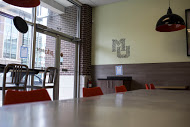Caffeine and alcohol go together like ‘bros’ and hair gel.
Or do they?
Pressure has been building on manufacturers of highly caffeinated alcoholic drinks such as Four Loko and Sparks, who have been accused of marketing their products to underage kids through the use of fruity flavors and brightly colored packaging.
These drinks, often referred to as ‘alcopops,’ have been labeled by many health experts as dangerous because of the high level of alcohol, (more than twice that of most beers), the copious amounts of caffeine, (which hides the level of intoxication from the drinker), and the juice box-type flavors.
John Mantsch, a professor in Marquette’s department of biomedical sciences, said the effects of mixing caffeine and alcohol have not been extensively studied. Mantsch, however, said he believes that mixing the two drugs creates a dangerous interaction.
“Caffeine, like alcohol, can produce dehydration, an effect that can make your hangover worse,” he said in an e-mail. “In some people, consuming one or two of these drinks alone could lead to a heart attack or stroke.
Mantsch said one of the more dangerous components of downing alcopops is that extra burst of energy the drinker feels.
“The vitalizing effect of the caffeine could contribute to risky behavior, such as driving while intoxicated,” he said.
A recent study conducted by three professors at the University of Florida confirmed Mantsch’s thinking. The study found that patrons who mix caffeine and alcohol were three times as likely to leave a bar highly intoxicated and four times as likely to intend to drive home, compared to people who drank straight alcohol.
School and government officials have begun to take notice of this relatively small segment of the alcohol industry.
Ramapo College, a liberal arts school in New Jersey, banned the drink Four Loko from its campus after 20 or so of its students were sent to the hospital for alcohol poisoning this year, largely due to the drink.
U.S. Sen. Charles Schumer (D-New York) sent a letter to the Federal Trade Commission asking the organization to investigate the marketing tactics of companies that produce alcopops.
“The marketing of drinks Four Loko, Joose and others like them lead one to believe that manufacturers are trying to mislead legal-age adults while actively courting underage drinkers,” Schumer said in a statement.
Gene Laczniak, a professor in Marquette’s department of marketing, said these types of drinks act as a gateway to drinking for underage youth who don’t enjoy the taste of traditional types of alcohol. Laczniak said alcopops such as Mike’s Hard Lemonade have been around for a long time.
“With the popularity of the Red Bull energy drink, things took a dark twist,” he said in an e-mail.
According to Laczniak, large brewers stay away from these types of products because of the negative publicity, although some of the smaller companies are subsidiaries of these large corporations.
“From a marketing ethics standpoint, these offerings are morally indefensible,” he said. “Of course, they are legal and profitable.”
Which is why alcopops are probably here to stay, at least for the time being.
Shannondoah Ledden, a junior in the College of Business, said he is a fan of Jager Bombs – a shot of the alcoholic drink Jagermeister, typically mixed with some Red Bull – and doesn’t necessarily view them as more dangerous than the average shot of whiskey.
“I enjoy (Jager) bombs because it perfectly meshes the energizing effects of Red Bulls and my ability to get drunk off of a new flavor of Sobe,” Ledden said.

